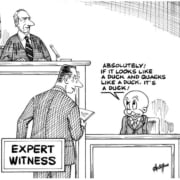The Latest Derivative Suit in Facebook’s Lengthy Litigation History
Derivative suits are a unique mechanism for shareholders, who technically own the corporation, to sue the officers and directors on behalf of the corporation when the officers fail to uphold their duty to the corporation. A counter-intuitive process, we take a look at Facebook’s recent litigation and the pending derivative suit.










